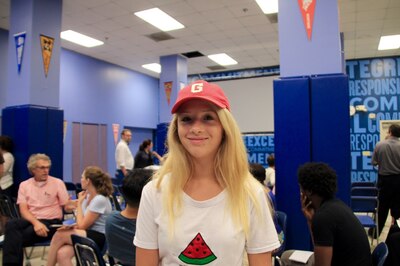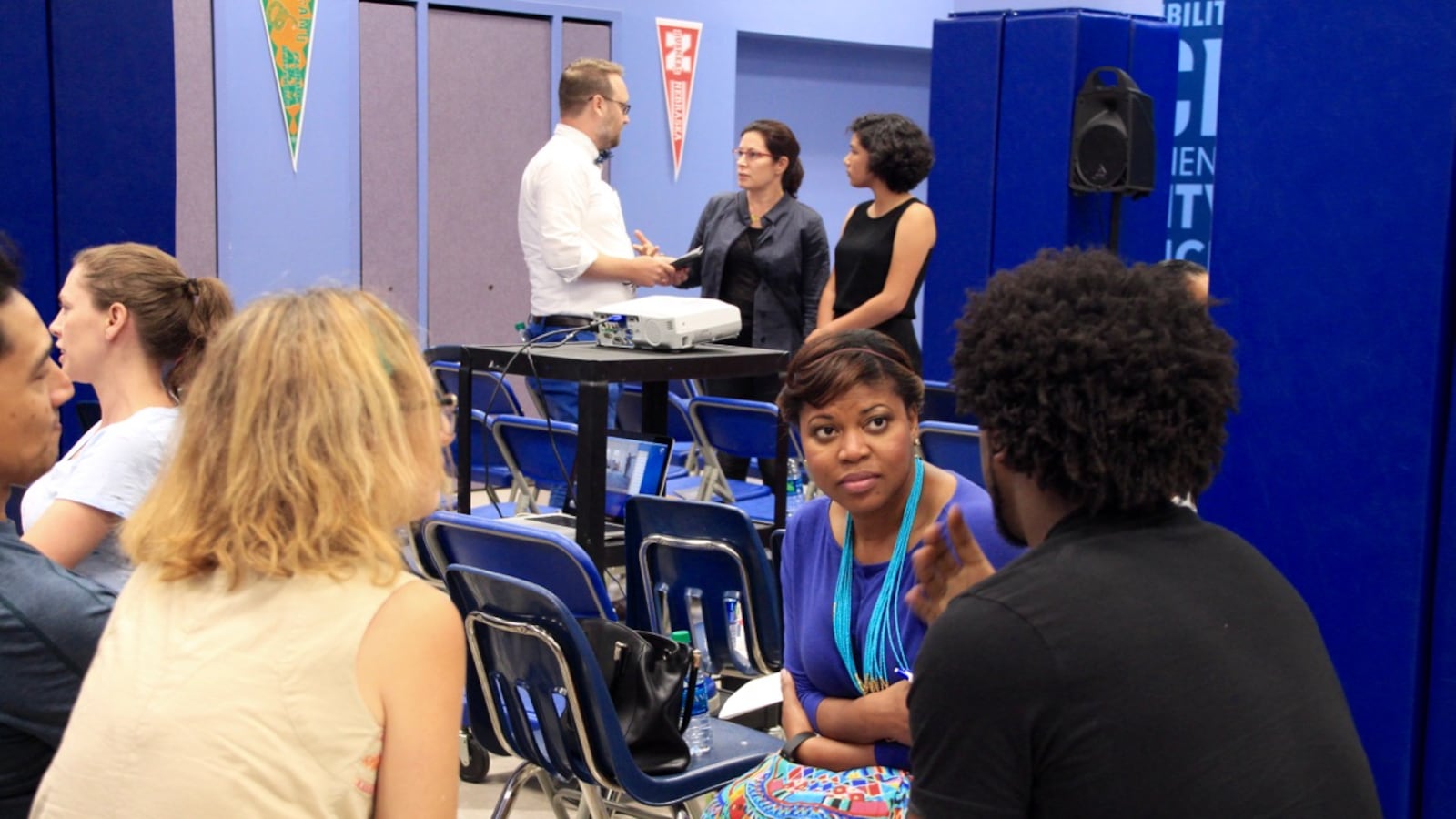What if Memphis decided to “do high school” differently from its current approach, shifting to a model where students gain deep knowledge by actively exploring real-world problems and challenges through extended study?
There would be no textbooks and little homework. Teachers would rarely lecture. School subjects wouldn’t dictate the day’s schedule, and achievement wouldn’t be based on written tests.
Instead, students would learn and demonstrate their knowledge almost exclusively through projects. The goal would be to equip them for 21st-century jobs that require soft skills such as collaboration, innovation and learning from failure.
About 40 Memphis parents, students and educators explored such possibilities this week during a special screening of “Most Likely to Succeed.” The 2015 documentary highlights High Tech High, a California school that gives its teachers complete autonomy on content and methodology in the classroom.
The downtown screening, which was followed by a panel discussion on project-based learning, was sponsored by Crosstown High Inc., Lausanne Learning Institute and Memphis Grizzlies Preparatory Charter School.
The Crosstown group is seeking to create a new high school in midtown Memphis with innovative approaches to teaching, including project-based learning.
Those attending the screening marveled at the way High Tech High was able to excite students about the projects they were researching and creating; others questioned the feasibility of training teachers and addressing all student needs under the model.
Here are four stakeholders who weighed in the prospect of a Memphis high school grounded in project-based learning:
Kassidy Falk, a rising 10th-grader at Germantown High School
You don’t have to have project-based learning to inspire kids to learn, says Kassidy, who recently moved to Memphis from California. She recalls having teachers who sparked — not squashed — her curiosity through more traditional methods. An example was her second-grade teacher, who worked one-on-one with Kassidy to break down the process of reading so that, after initially falling behind her peers, she eventually was able to surpass her targeted reading level. But Kassidy also realizes that she may have a deficit in her soft skills training. “You can turn those skills into building blocks for later in life,” she said.
Leigh Mansberg, assistant head of St. Mary’s Episcopal School
“There’s a lot of culture shock” in the switch, said Mansberg, who observed confusion on the faces of parents who watched as the filmmakers presented their arguments for overhauling the school day. But that doesn’t mean there aren’t ways to take away some lessons and incorporate them into classrooms now, she said. “Do you have to do it all the way? Things take time,” she said. “I’m interested in some sort of hybrid.”
Mansberg said the most powerful part of the documentary and learning model was seeing the growth of one girl’s confidence, maturity and creativity. “If education silenced that in her … what a big failure of education,” she said. “It’s that relationship piece. There is no technology that can help her find her voice. It took human power and empathy and experience.”
Leandra Oliphant, an 8th-grader at Maxine Smith STEAM Academy
While High Tech High looked fun, the lack of curriculum made Leandra pause.

“Usually a school gives stuff to cover and covers it,” she said. “At my school, it’s a STEAM school, so we learn concepts you don’t usually learn like coding. It’s a little similar to what we saw in the film.”
Leandra struggled to imagine going to a school with so little structure. High Tech High didn’t have bells ringing letting you know that a class was over. It focused on group learning, and the students and teachers collaborated on what they would cover that semester. “I couldn’t do that,” she said. “I can’t imagine the teacher not being in front or in charge. I’d talk the whole time.”
Precious Boyle, Memphis program director, Leading Educators
During a group discussion after the film, Boyle asked the audience how Memphis educators could combine the project-based learning concept presented in the documentary with traditional schooling.
“We don’t live in that world in the state of Tennessee, in the city of Memphis,” said Boyle, who questioned the adequacy of training programs that prepare teachers for less than the bare minimum. “How can we ask them to do so much more?” she asked.
Boyle also noted the model is not conducive to students who aren’t planning to go to college after graduation. “This is great, but this not the reality,” she said.

